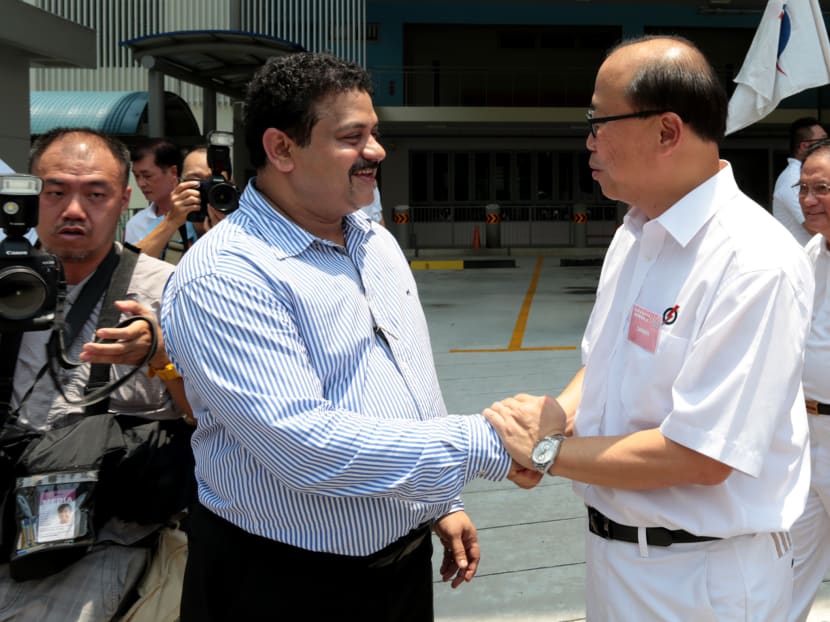Both independent candidates lose election deposit
SINGAPORE — The two independent candidates in this year’s General Election — the first such contenders since the 2001 polls — have each lost their election deposit of S$14,500.

PAP’s David Ong (right) with independent candidate Samir Neji on Nomination Day. Mr Ong won Bukit Batok SMC, where Mr Samir garnered 150 votes. Photo: Jason Quah
SINGAPORE — The two independent candidates in this year’s General Election — the first such contenders since the 2001 polls — have each lost their election deposit of S$14,500.
Blogger Han Hui Hui, who ran in the single-seat ward of Radin Mas, garnered 10 per cent of the votes in a three-cornered fight won by Mr Sam Tan of the People’s Action Party (PAP). Mr Tan won the seat with 77.25 per cent, or 20,230 votes; while the Reform Party’s Kumar Appavoo received 12.7 per cent.
At Bukit Batok Single Member Constituency, independent candidate Samir Salim Neji garnered only 150 votes, or 0.6 per cent of the total.
Mr Samir, the managing director of software firm Anaplan Asia, was a surprise candidate, turning up out of the blue on Nomination Day to contest against Singapore Democratic Party’s Sadasivam Veriyah and PAP incumbent David Ong.
Mr Ong won Bukit Batok with 73 per cent of votes cast, while Mr Veriyah received 6.4 per cent.
Ms Han held two election rallies on Sept 3 and 8, while Mr Samir did not hold any. After the official results were announced last night (Sept 11), Ms Han, 23, acknowledged in a post on her official Facebook page that she “still has a long way to go”.
“We’ve made history by allowing the first female independent candidate, the youngest candidate, the only post-1990 candidate and an independent candidate to score such a result. This is the first time an independent candidate broke the single digit,” she added, thanking the Radin Mas residents for voting for her.
Attempts by TODAY to reach Mr Samir, 45, were unsuccessful.
Several analysts said that while it is difficult for independent candidates to hold their ground against those contesting under party banners, they will still be around in future elections.
Singapore Management University law don Eugene Tan said the independent candidates’ showing proved that it was “very difficult (for them) to gain traction in our electoral landscape”. With Members of Parliament (MPs) required to run town councils, the question of whether independent candidates will be able to manage them is bound to arise.
He added: “There will always be people who want to contest in elections for whatever reason, and on their own terms, so there will be independent candidates. As we move to a two-party system, we can be sure that people who don’t fit under the Workers’ Party umbrella, but are not pro-PAP, might come out and don the independent hat.”
Said Associate Professor Alan Chong from the S Rajaratnam School of International Studies: “The independents are, I think, not clued in on the way politics operate in Singapore. You cannot challenge the incumbent by saying: ‘I am a fresh face’.
“You need an organisation and you must have staying power ... You cannot run under your own banner out of nowhere.”
Former Nominated MP Siew Kum Hong said independents may have overestimated their ability to attract votes. “In the first place, the threshold is pretty high. There’s no place for independents in this kind of landscape — it’s going to be very hard for them to make any headway.
“You really need a real party machinery; that’s a huge advantage,” he added.











